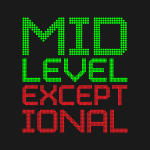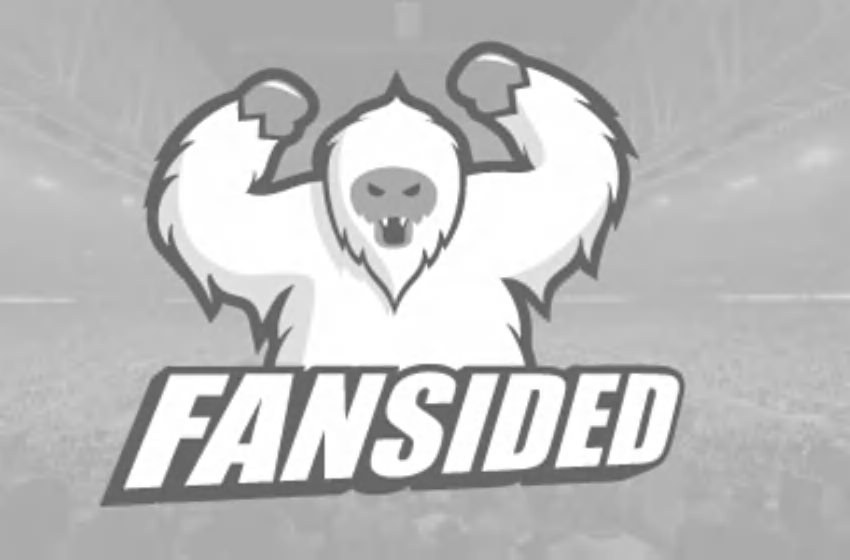Explaining Bird Rights with the Help of LeBron James
Thanks to the unusual nature of LeBron James’ contract (which I wrote about here) and the confusing elements of what are commonly called “Bird rights” I wanted to use his situation to walk through how teams and players accumulate these rights over time.
First off, a few notes on Bird rights:
–Remember that Bird rights at their core are exceptions to the salary cap. At the same time, if a team wants to sign one of their free agents with cap space and have it available, they can certainly do so. The players accumulate the years and bolster their Bird rights even if the exception is not used that time.
–The player’s service must be continual with that team, at least in the NBA. LeBron’s time in Cleveland prior to his four years in Miami mean absolutely nothing in terms of his Bird rights with his return. Time spent abroad can be more complicated and I’ll leave that for a later day.
–The duration of the contracts does not matter in most circumstances, just the total amount of continual service. Let’s use LeBron. It makes zero difference for his Bird rights if he signs one year deals season to season or a single three year contract. As I said with continual service, we’ll save the nitty gritty of rest of the season contracts and 10-days for another time.
–In a vast majority of cases, a player on the same contract will retain Bird rights even if traded. Think about a guy like James Harden. Even though Houston traded for him shortly before his extension deadline, they were still able to use Bird rights to sign him to an extension before he even played a single regular season game with the team. The most common case of a player losing Bird rights comes when a player is on a one-year contract that will give him Bird rights (Early or Full) at the end of the season. In these circumstances, players actually have an extremely rare ability to block trades and that comes because the cost of agreeing to the trade is the loss of their Bird rights.
–The first season of tenure with a team does not need to be a full one. If a player signs mid-season the first year and then sticks around for two more, the team has Full Bird rights just like if he played the entire first season with them.
–Changing teams as a free agent resets the clock no matter what. Even if a guy gets moved in a post-season, pre-moratorium trade, gets waived, and then scurries right back to his original team, they do not retain any Bird rights.
If you want to read more rules, check out Larry Coon’s beyond excellent CBA FAQ.
Let’s move on to LeBron’s situation.
After Year One (Summer of 2015):
This one is actually easy. After one season, the only option in terms of Bird rights are Non-Bird, which are a version of Bird rights despite the name. If a team uses Non-Bird rights to retain their own free agent, they can pay him up to the greater of 120% of his salary in the previous season, 120% of the minimum salary, or the amount needed to tender a qualifying offer if they are a Restricted Free Agent.
Under the Non-Bird Exception, the contract can run from one to four years with maximum raises or decreases of 4.5%, the same as signing away another team’s free agent or acquiring someone via sign-and-trade. These rules prevent a team over the cap from gaming the system by picking up a player on a cheap deal and then giving him a huge contract the next season. This limitation also explains why Brooklyn could not sign Shaun Livingston to the contract Golden State offered- his first year salary on the new deal was more than 20% larger than his previous one with the Nets.
In the case of LeBron, 120% of his 2014-15 salary would put him all the way up to his max and of course that would be as high as he can go. A player’s individual maximum is his max and there are no ways to exceed it. In 2015, that would be the larger of $21,676,620 (105% his 2014-15 salary) and 35% of the 2015-16 salary cap (calculated using a different BRI than the actual salary cap because the CBA is evil). I would expect the 35% figure to end up being around $23 million for the 2015-16 season. As a Non-Bird free agent, LeBron’s cap hold if he opts out will be his full max because the Non-Bird cap hold is 120% of the player’s prior year salary up to his max. As such, James opting out would not help Cleveland’s cap room unless he signs for less money.
After Year Two (Summer of 2016):
Here we have two options: Non-Bird and Early Bird. Non-Bird you know and it would be exactly as described above.
Early Bird rights do a few things differently that make them interesting. First, they cannot be used for a one-year contract and option years do not count as years, so a LeBron Special of a one year deal with a second season player option would not fly. The reason for this tightening comes from the additional financial flexibility offered to Early Bird free agents compared with Non-Bird guys. Here, the contract size gets larger and can be up to the greater of 175% of the player’s previous year’s salary or 104.5% of the “average salary” from the previous season. While not exactly the same, thinking the amount of the Non-Taxpayer Mid-Level Exception would not lead you too far astray when it comes to average salary. Early Bird free agents can also sign contracts with the 7.5% maximum raises and decreases like Full Bird rights.
Thanks to the two year minimum length for Early Bird contracts, we could see LeBron go with Non-Bird rights to do a third 1+1 contract or use Early Bird rights to lock in a long-term deal before the new Collective Bargaining Agreement.
In an interesting turn, a huge increase in the salary cap with the new national TV contract in 2016 could actually make it so that LeBron could not get his full maximum using Non-Bird rights. If LeBron wanted his absolute full maximum at that point the Cavs would need to have sufficient cap space (which they likely would considering how big the corresponding cap increase would be) or use Early Bird rights since 175% of his 2015-16 salary would certainly get him there.
After Year Three (Summer of 2017):
The mack daddy of them all: Full Bird rights. Here, the maximum salary is that player’s individual maximum, not some percentage of what they made the previous season or the average salary. Full Bird rights allowed the Rockets to (theoretically, as it turned out) take Chandler Parsons from making just over the minimum to making his full maximum the next year even after they filled up their cap space.
Along with the salary flexibility, Full Bird rights also have the added benefit of being used for any length contract (1-5 years) and the maximum 7.5% raises and decreases.
Once a player accumulates Full Bird rights with a team, over the cap teams typically use them to sign players due to the salary, duration, and raise flexibility they offer. The most common way a team does not use them on a player they want to bring back is when they need to renounce those rights and the cap hold that comes with them to use additional cap space and then re-sign the player to a smaller salary using space. We had this happen recently with Dirk Nowitzki and the Mavericks- his willingness to sign a cheaper deal and their desire to use cap space to sign Chandler Parsons led them to renounce Dirk’s rights before offering Parsons and then just signing him outright using cap space after the Rockets did not match. I should also note that even though renouncing a free agent like Dallas did here normally resets their Bird rights, re-signing that player using other means like cap space here brings those rights back as long as they return to the same team as we saw here.
If LeBron makes it all the way to Full Bird rights with the Cavs, essentially the only way Cleveland would use something else to re-sign him would be a situation like Dirk’s.
Should you have any questions on Bird rights, feel free to ask me on Twitter.


